Best movies like Cairo as Told by Youssef Chahine
A unique, carefully handpicked, selection of the best movies like Cairo as Told by Youssef Chahine Starring Youssef Chahine, Khaled Youssef, Khaled El Nabawy, Bassem Samra, and more. If you liked Cairo as Told by Youssef Chahine then you may also like: 11'09''01 September 11, Words of Advice: William S. Burroughs On the Road, Cairo Time, Cairo Station, Gaza and many more popular movies featured on this list. You can further filter the list even more or get a random selection from the list of similar movies, to make your selection even easier.
This concise masterpiece began as a commission by French TV for the news series Envoyé spécial. By filming Cairo with his unique sense of artistic digression, Chahine transformed this portrait of a city into the self-portrait of a filmmaker.
You may filter the list of movies on this page for a more refined, personalized selection of movies.
Still not sure what to watch click the recommend buttun below to get a movie recommendation selected from all the movies on this list
Words of Advice: William S. Burroughs On the Road
A portrait of the American Beat Generation writer William S. Burroughs (1914-1997) based on never-before-seen footage from his visit to Denmark in October 1983, and from his later years in Lawrence, Kansas. After having spent more than a quarter of a century outside of the United States, in Mexico, Tangier, Paris and London, Burroughs returned to New York in 1974. Shortly after, he began touring and reading his work to new generations of readers and thus establishing himself as a cult figure. The film focuses on Burroughs' unique talent as a performer, and on his later work, especially what is known as The Last Trilogy. In addition to the historic footage there are new interviews with friends and colleagues.
Cairo Time
In Cairo on her own as she waits for her husband, Juliette finds herself caught in a whirlwind romance with his friend Tareq, a retired cop. As Tareq escorts Juliette around the city, they find themselves in the middle of a brief affair that catches them both unawares.
Cairo Station
Qinawi, a physically challenged peddler who makes his living selling newspapers in the central Cairo train station, is obsessed with Hanuma, an attractive young woman who sells drinks. While she jokes with him about a possible relationship, she is actually in love with Abu Siri, a strong and respected porter at the station who is struggling to unionize his fellow workers to combat their boss' exploitative and abusive treatment.
Gaza
GAZA brings us into a unique place beyond the reach of television news reports to reveal a world rich with eloquent and resilient characters, offering us a cinematic and enriching portrait of a people attempting to lead meaningful lives against the rubble of perennial conflict. Throughout its entire history the Gaza Strip has been witness to conflict and upheaval. From ancient times this tiny coastal territory, located at a crossroads between continents, has been a pawn whose fate rested in the hands of powerful neighbours.
Parajanov: The Last Spring
Made in wartime and edited in candlelight, Mikhail Vartanov's rarely-seen masterpiece tells about his friendship with the genius Sergei Parajanov who was imprisoned by KGB "at the peak of his artistic power". Vartanov takes us back with the scenes from his censored 1969 film The Color of Armenian Land where Paradjanov is at work on his suppressed chef-d'oeuvre The Color of Pomegranates - widely regarded as one of the greatest films of all time - and contrasts it with the shocking request Parajanov sent him in unpublished 1974 letters from the Soviet prisons. Vartanov's camera documents Parajanov's striking last day at work in 1990 during the making of the unfinished Confession. A monumental wordless montage - the entire sixth reel - concludes Vartanov's acclaimed documentary, which, despite the prohibitive conditions it was created in, won the admiration of many of cinema's greatest artists, including Francis Ford Coppola and Martin Scorsese.
Sahara
Actress Mignon is the toast of Paris until she marries young American engineer John Stanley. He is commissioned to go to work in the Sahara desert, and Mignon accompanies him with their baby. But it isn't long before she is lonely and horribly bored. When a wealthy Russian, Baron Alexis, passes through the camp, he offers to take her away to Cairo. She goes with him, and he surrounds her in luxury. Years pass, but the situation does not bring her happiness.
Dark City Beneath the Beat
Dark City Beneath The Beat is an audiovisual experience that defines the soundscape of Baltimore city. Inspired by an all original Baltimore club music soundtrack, the film spotlights local club artists, DJs, dancers, producers, and Baltimore’s budding creative community as they are realizing their life dreams. Rhythmic and raw, these stories illustrate the unique characteristics of the city’s landscape and social climate through music, poetry, and dance. From the city’s social climate to its creative LGBTQ community, Dark City Beneath The Beat showcases Baltimore club music as a positive subculture in a city overshadowed by trauma, drugs, and violence.
Baba Amin
1950 Cairo, Amin is a simple employee who lives with his family of three, his wife Zahira, son Nabil and daughter Hoda. Amin’s friend Mabrouk convinces Amin to invest his life savings in a project, which he promises, will get him rich. Amin agrees but forgets to take a receipt. Amin suddenly dies and watches on from the after life.
Alexandria... New York
An enthralling look at the relationship between America and the Arab World from an Arab perspective. It tells the story of Yehia, a renowned Egyptian filmmaker whose life has been shaped by a pair of disrupted love affairs, one with an American woman named Ginger, the other with America itself.
Dalida
Based on the true story of acclaimed music icon "Dalida" born in Cairo, who gained celebrity in the 50s, singing in French, Spanish, Arabic, Hebrew, German, Italian, playing in awarded Youssef Chahine's picture "Le Sixième Jour", and who later committed suicide in 1987 in Paris, after selling more than 130 million records worldwide.
The Beaver Trilogy
Our story begins in 1979, with a chance meeting in a Salt Lake City parking lot where filmmaker Trent Harris is approached by an earnest small-town dreamer from Beaver, Utah. Harris jumps at the chance when the young man invites him to come to the small town to film a talent show. At the show, the man dons a blond wig and performs in drag as Olivia Newton John. Harris captures it all on tape: A portrait of a true outsider. Harris shot a dramatic piece, "Beaver Kid 2" based on the documentary; This interpretation of the story, made in 1981 on a home video camera with a budget of $100, features a young Sean Penn as "the Beaver Kid". Still possessed, Harris then rewrote the script, cast up-and-comer Crispin Glover in the lead, and created the final segment, "The Orkly Kid", with funding from the American Film Institute. The trilogy unveils the inner world of a fantastic character in three incarnations.
An Egyptian Story
After we last see him in "Alexandria, Why?" Egyptian filmmaker Yehia Mourad is in his thirties, and successful in his work, he has grown distant from his wife and children and suffers a symbolic blockage of the heart while shooting the final scenes of his latest film. After being flown to England for evaluation, it's determined that Yehia must undergo emergency surgery. Fact and fiction blend seamlessly—with healthy doses of cleverly absurdist fantasy—as the film explores the various personalities and forces that have made Yehia (and Youssef Chahine) the man he has become.
Exterior/Night
When a day in the life of a beleaguered Egyptian filmmaker goes sideways, he witnesses anew issues like class and gender relations.
The Clouzot Scandal
Great filmmakers claim the artistic influence of French director Henri-Georges Clouzot (1907-1977), a master of suspense, with a unique vision of the world, who knew how to offer both great shows and subtle studies of characters. Beyond the myth of the tyrannical director, a contrasting portrait of a visionary, an agitator, an artist against the system.
John Ford: The Man Who Invented America
Over a 50-year career and more than a hundred movies, filmmaker John Ford (1894-1973) forged the legend of the Far West. By giving a face to the underprivileged, from humble cowboys to persecuted minorities, he revealed like no one else the great social divisions that existed and still exist in the United States. More than four decades after his death, what remains of his legacy and humanistic values in the memory of those who love his work?
Toyen
Jan Nemec, a leading filmmaker of the Czech New Wave, creates an original portrait of one of the most provocative artists of the 20th century: Toyen (Marie Cerminova). As a female artist, Toyen broke through the male-dominated art world to create paintings and drawings often erotic in nature. She co-founded the surrealist movement in her native Prague, survived the Nazis and the Communists, maintained artistic and personal relationships with artists Jindrich Heisler (whom she hid during WWII) and Jindrich Styrsky.
Ariane Mnouchkine - L'aventure du Théâtre du Soleil
In this film, Catherine Vilpoux recounts Ariane Mnouchkine’s iconic artistic journey: her inspirations, her dreams for the theatre, her love of cinema, her unique and extraordinary bond with audiences. Extensive archival material – much of which has never been seen before – together with extracts from performances and rehearsals, as well as interviews and coverage of various tours and travels, reveal an in-depth portrait of the Théâtre du Soleil, and its artistic and political commitment both in France and internationally, for which it was awarded the International Ibsen Award in September 2009. Everyone who has seen one of Ariane Mnouchkine’s productions at the Théatre du Soleil in Paris leaves with the feeling of having been part of a tale of enchantment. A tale that is larger than life but at the same time reveals life.
Toyen: The Subversive Baroness Of Surrealism
Documentary on the life and art of Marie Cermínová AKA Toyen or “the baroness” to her friends. Long considered a marginal figure, it was not until her death in 1980, when her estate was auctioned off, that Toyen’s masterpieces finally saw the light of day. This film is a portrait of an important figure of the European artistic avant-garde in the 20th century.
Asog
This unique narrative incorporating documentary elements follows Rey, a 40-year-old non-binary teacher and typhoon survivor, on a roadtrip to fame. With surreal comedy and social portrait realism, filmmaker Seán Devlin explores climate change, LGBTQ+ issues, and the impact of colonialism on contemporary Philippines.
Return of the Prodigal Son
Freed after spending years in prison, an activist's homecoming turns into a dark affair as his disillusion clashes with his family's expectations. Demonstrating Chahine’s eclecticism, this is an elegant melodrama, exuberant musical, layered allegory, and profound portrait of personal and political disillusionment.
Spécial police
Paris Flic and computer-crack David Ackermann is a teacher at the academy advising the rookies in computer-crime. By coincidence Informations about personalities from the high-politics and police-authorities that are involved in organized crime fall into his hands. From than on he's been chased merciless, even having his ex-wife kidnapped to blackmail him. With the help from his new girlfriend he lashes back.
Volker Schlöndorff: The Beat of the Drum
The life and work of the brilliant German filmmaker Volker Schlöndorff, a cross-border artist who, by leaving Germany and making the whole world his place of work, acquired the objective perspective necessary to portray his country's society better than anyone else while providing a unique and original point of view on the troubled history of the European continent.
Ego: The Strange and Wonderful World of Self-Portraits
Laura Cumming takes a journey through more than 500 years of self-portraits and finds out how the greatest names in western art transformed themselves into their own masterpieces.
2000 Cinématons
A film about an ongoing cinematic adventure that began in 1978: a vast anthology of personality portraits called Cinématons, dealing with people in the arts. Historical, ethnological, sociological and psychological, this anthology is a living record of the artistic community of the last 20th century which attempts to answer these questions: Why film everyone? Why choose cultural personalities? How do the subjects look at their image? How much exhibitionism and narcissism is involved in being filmed?
The Land
Set in 1933, the mayor informs the peasants that the share of irrigation of their land will be split equally between them and feudal lord Mahmoud Bey. The peasants send Mohamed Effendi to submit a petition to the government. Mahmoud Bey then proposes a project that would require taking part of the peasants' lands.
Alexandria Again and Forever
Set in 1987 against the backdrop of a hunger strike by the Egyptian film industry, Chahine himself steps in to play Yehia, the famed Egyptian director whose life is chronicled in "Alexandria, Why?" and "An Egyptian Story". Obsessed with Amr, the handsome actor he discovered and cast as his alter-ego in parts one and two of The Alexandria Trilogy, Yehia pressures Amr to star in various film projects that change even as Yehia's perception of the young actor begins to change. He first casts Amr as Hamlet, which the actor deems too demanding for his talents, then as the lead in a musical biopic of demigod Alexander the Great, who founded the city of Alexandria in 332 B.C.
The Lady in the Portrait
An empress commissions a painting of herself from a French outsider in hopes of stirring her husband's interest in this lavish period piece. The Lady in the Portrait is a period yarn evoking the unique rapport between a French missionary and the Manchurian Empress whose portrait he's ordered to paint.
Adieu Bonaparte
This big-budget historical epic from acclaimed Egyptian director Youssef Chahine features a crazed turn by Patrice Chereau as Napoleon Bonaparte. The film, an Egyptian-French co-production, deals with Napoleon's occupation of Alexandria and its effect on a typical Egyptian family. Michel Piccoli leads the cast as a general in Napoleon's army who tentatively befriends a local poet.
In the Last Days of the City
In the fading grandeur of downtown Cairo, Khalid, a 35-year-old filmmaker is struggling to make a film that captures the pulse of his city at a moment when all around him dreams as much as buildings are disintegrating. With the help of his friends who send him footage from their lives in Beirut, Baghdad and Berlin, he finds the strength to keep going through the difficulty and beauty of living IN THE LAST DAYS OF THE CITY.
The Lady from Cairo
In 1990, Moumen Smihi briefly re-located to Cairo in order to work in the shadow of one of the world’s largest commercial film industries. The film that resulted from his Cairo sojuourn is a complex, painterly critique of the Egyptian musical and cinema star system. At the same time, the film shows the divergent states of possibility or despair faced by men and women within a changing Egyptian society. Smihi’s film plays out over thirty years and the events of the Nasserite years and the Palestine / Israel conflict become integral to the narrative. By blending newsreel footage with his own lush cinematography, Smihi creates a complex portrait of contemporary Egyptian society in the post-war years.
Night Passage
Night Passage is a digital film on friendship and death. Made in homage to Miyazawa Kenji's classic novel, Milky Way Railroad, the story evolves around the spiritual journey of a young woman, in the company of her best friend and a little boy, into a world of rich in-between realities. Their venture into and out of the land of "awakened dreams" occurs during a long ride on a night train. The filmmaker elegantly depicts each encounter in two-dimensional space with a unique artistic gesture and ingeniously frames the passage as a series of rhythmic image sequensces as seen through the window of a train.
The Extraordinary Voyage
An account of the extraordinary life of film pioneer Georges Méliès (1861-1938) and the amazing story of the copy in color of his masterpiece “A Trip to the Moon” (1902), unexpectedly found in Spain and restored thanks to the heroic efforts of a group of true cinema lovers.











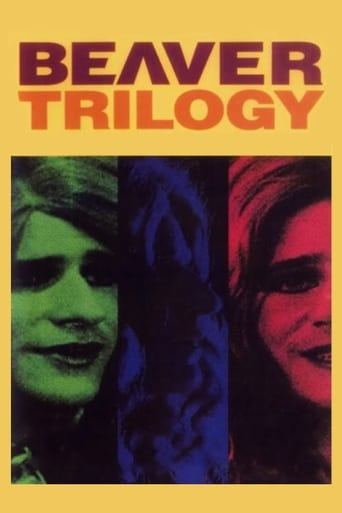









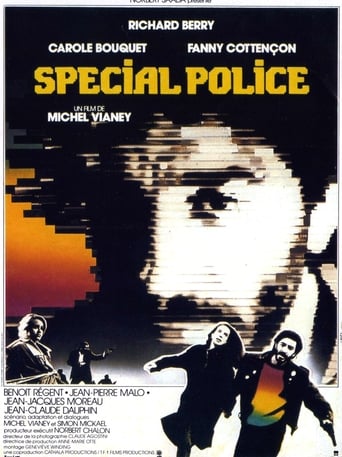














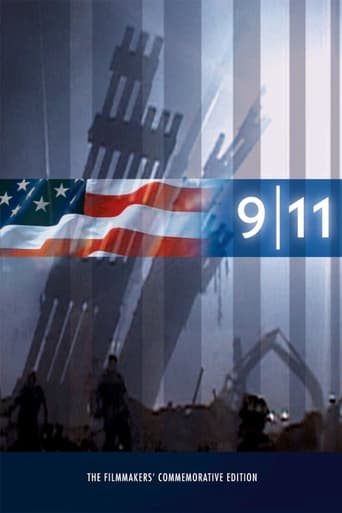

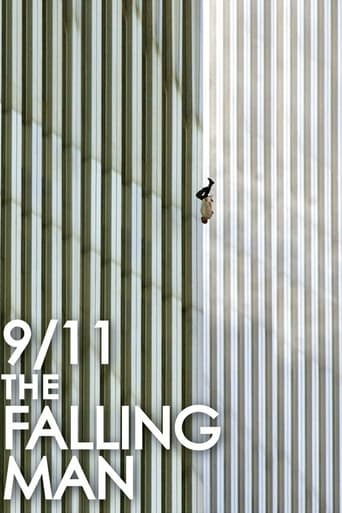
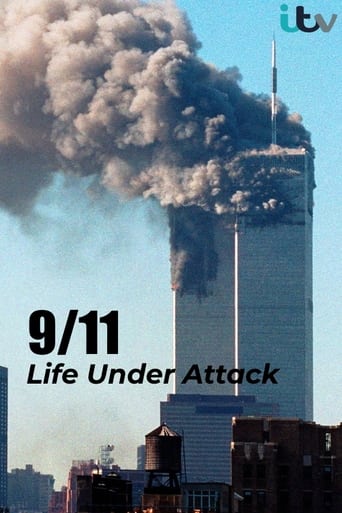
11'09''01 September 11
Filmmakers from all over the world provide short films – each of which is eleven minutes, nine seconds, and one frame of film in length – that offer differing perspectives on the 9/11 terrorist attacks.